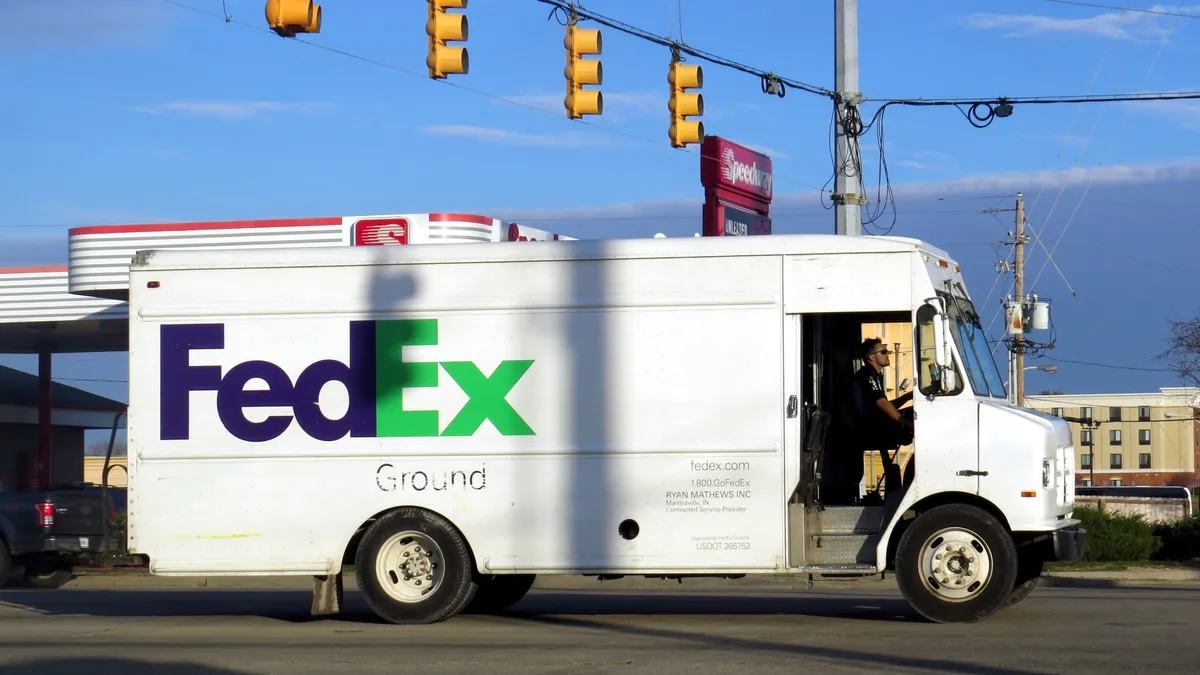Dive Brief:
- FedEx Ground Package Systems has agreed to pay $2.4 million to resolve a lawsuit alleging it misclassified drivers in New Jersey as independent contractors (Carrow, et al. v. FedEx Ground Package Systems, Inc., No. 1:16-cv-03026 (D.N.J., Dec 15, 2020)).
- The drivers argued that they were employees under New Jersey case law and that deductions FedEx made from their pay ran afoul of state law.
- The plaintiffs' attorneys estimated that the class of 192 drivers will receive about $8,400 each under the proposed settlement. FedEx denied the allegations.
Dive Insight:
Under New Jersey's "ABC test" for classification, according to the state, a worker should be considered an employee unless all following circumstances apply:
- The individual has been and will continue to be free from control or direction over the performance of work performed, both under contract of service and in fact; and
- The work is either outside the usual course of the business for which such service is performed, or the work is performed outside of all the places of business of the enterprise for which such service is performed; and
- The individual is customarily engaged in an independently established trade, occupation, profession or business.
Other states have similar standards. California adopted the test in 2019, codifying a state supreme court ruling that a worker can be classified as an independent contractor only if the worker: a) is free from the control and direction of the hirer in connection with the performance of the work, both under the contract for the performance of such work and in fact; b) performs work that is outside the usual course of the hiring entity's business; and c) is customarily engaged in an independently established trade, occupation or business of the same nature as the work performed for the hiring entity. Notably, voters approved a state ballot measure in November 2020 to classify app-based drivers as independent contractors.
But state law isn't the only factor in determining a worker's employment status for wage and hour purposes. The U.S. Department of Labor, which enforces the Fair Labor Standards Act nationwide, considers more factors but also in October 2020 proposed a shift to an "economic reality" test.












